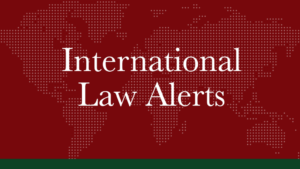
President Rodrigo Duterte lauded the Senate for concurring in the ratification of a treaty that bans the development and use of nuclear weapons, saying it is a “milestone” in pursuing peace.
US President Joe Biden ran supporting a return to diplomacy with Iran but made clear he will not be rushed into re-entering a 2015 nuclear deal trashed by Donald Trump.
The United States government has donated radiation detection equipment to the Bureau of Customs (BOC) to boost the Philippines’ capability to prevent the entry of radioactive materials that can be used in making nuclear weapons.
In the aftermath of a nuclear accident, such as the one at Fukushima Daiichi Nuclear Power Plant in 2011, the radiologically contaminated area in the vicinity of a reactor can be too dangerous for people to enter to monitor radiation. A new technology using drones, developed by the IAEA for use by the authorities of Fukushima Prefecture in Japan, will make this task easier.
IAEA and the Forum of Nuclear Safety and Security Authorities in G5 Sahel and Senegal (FASSN) signed a cooperation agreement to address transboundary threats and strengthen nuclear security in the Sahel region, during a virtual ceremony held on 18 February 2021.
A national policy and strategy that accounts for the management of disused radioactive sources at the end of their life cycle is essential to prevent such sources from getting stolen or lost with potential safety and security consequences, concluded European regulators during the first in the series of virtual regional meetings on the implementation of the IAEA Guidance on the Management of Disused Radioactive Sources.
For more than 57 years, the partnership between the Food and Agriculture Organization of the United Nations (FAO) and IAEA has contributed to addressing global challenges, including food insecurity, climate change, animal/zoonotic diseases and, most recently, the COVID-19 pandemic.
The IAEA and FAO signed a Revised Arrangement today, which upgrades their partnership and expands the horizons of their work.
The Atomic Energy Organization of Iran (AEOI) and the International Atomic Energy Agency (IAEA) recalled and reaffirmed the spirit of cooperation and enhanced mutual trust that led to the Joint Statement in Tehran on 26 August 2020, and the importance of continuing that cooperation and trust.
By analysing samples to verify countries’ declarations of nuclear material, Urska Repinc, an Analytical Chemist, contributes to the IAEA’s mission to verify the peaceful use of nuclear material – an activity known as nuclear safeguards.







































































































 on the upper right corner to select a video.
on the upper right corner to select a video.